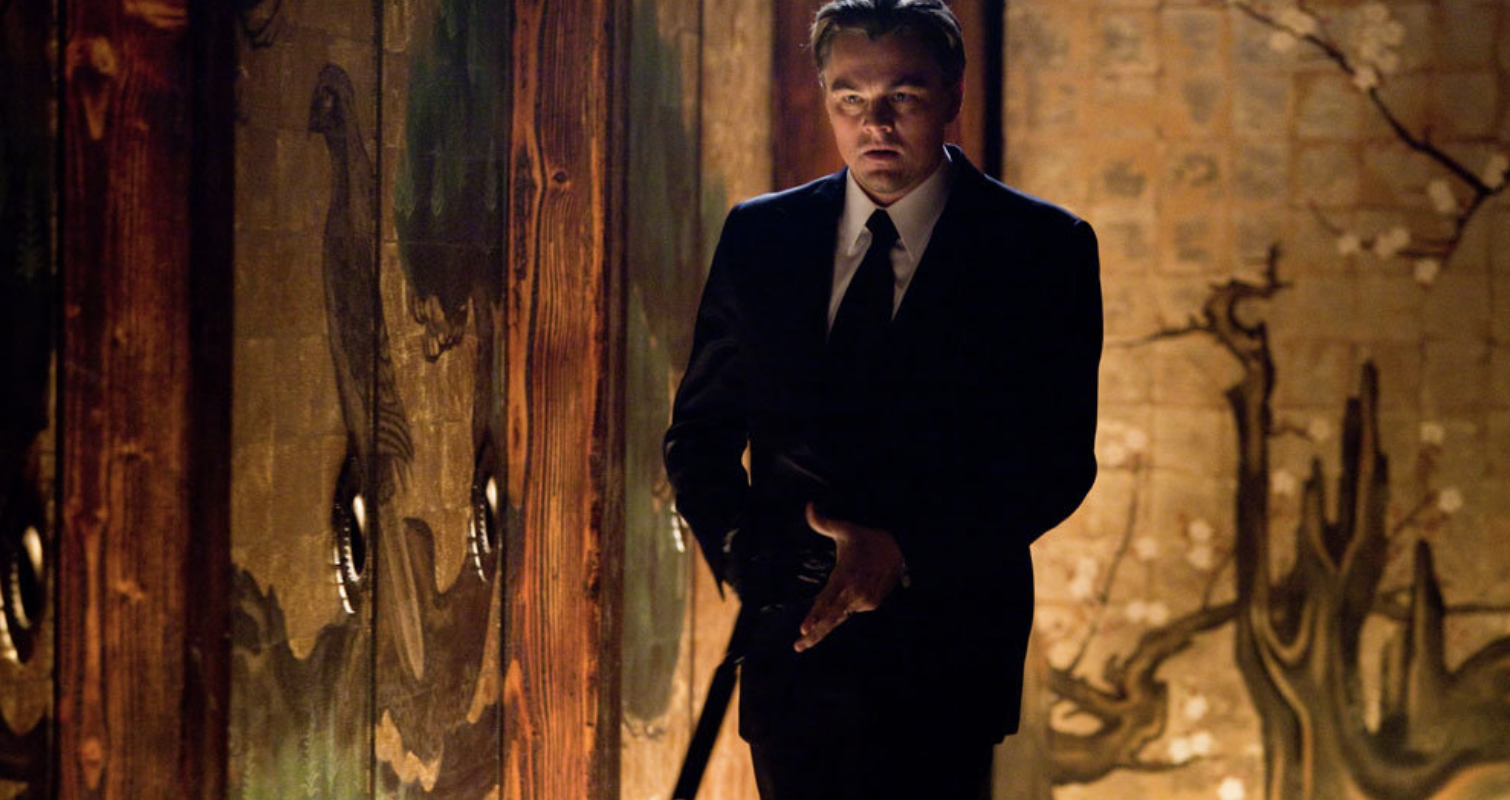
We're counting down to the release of Oppenheimer by looking back at Christopher Nolan's movies in order.
The director's latest project is a typically secretive affair, tracing the development of the atomic bomb. Cillian Murphy plays J. Robert Oppenheimer, the man who sent humanity careering in a dark new direction, and the remarkable supporting cast includes Emily Blunt, Matt Damon, Florence Pugh and Robert Downey Jr.
Clad in fiery vistas that herald the birth of brand-new 20th-century warfare, Oppenheimer is poised to be a feast for the senses and the emotions. Nolan splits the aesthetic of the movie between timeline and colour, promising a truly epic delve into an epochal moment in human history. As expected, Nolan has captured the movie on IMAX cameras, resulting in apocalyptic sequences that promise to take the breath away.
This week, we're examining Nolan's seventh feature film: Inception.
What is the story of Inception?
Dominic Cobb (Leonardo DiCaprio) is a master of the art of 'extraction'. This entails invading a subject's subconscious and eliciting highly prized information, which can then be sold to the highest bidder. However, Dom's own subconscious is haunted by his late wife Mal (Marion Cotillard) who tragically committed suicide.
Dom is approached by rich businessman Saito (Ken Watanabe) to perform the inverse of extraction, known as 'inception'. This involves planting the seed of an idea within a subject's mind, which will then influence their psychology and eventual behaviour. Dom reluctantly agrees to this notoriously difficult task in exchange for immunity so he can return to America and reunite with his estranged children. He then assembles a team to go inside the mind of Fischer (Cillian Murphy), whose business empire Saito wants to see dismantled.
Accompanied by Ariadne (Ellen Page), Arthur (Joseph Gordon-Levitt) and Eames (Tom Hardy), Dom takes on the most dangerous mission of his career. But Fischer's subconscious turns out to be a deadly trap that's loaded with all manner of surprises...
How was Inception made?
By 2010, writer-director Christopher Nolan had carved out an enviable niche in Hollywood. The critical acclaim of his early movies Following, Memento and Insomnia cemented him as a purveyor of moody psychological thrillers, and the success of those films propelled him onto Batman Begins. Nolan's debut Batman movie reinvented the DC character as an arresting embodiment of fear, in the process soaring to critical success while also, crucially, raking in the big bucks.
Following the acclaim for The Prestige and, more significantly, the world-conquering success of The Dark Knight, Nolan had emerged as that most singular of filmmakers. He could deliver the popcorn spectacle demanded by a mass audience, but could also secure the artistic credentials that would play well with the discerning critics. Little wonder that distributor Warner Bros. continued to invest in Nolan as a filmmaker – he was capable of turning in artistic successes that also kept the company's investments firmly in the black.
This was the very specific path walked by Nolan en route to Inception. He could only make this movie at this point in his career, having proven his worth in both artistic and commercial terms. Such was Warner's trust in Nolan that they allowed him to paint a deeply personal story of psychological espionage on a vast canvas, with a huge budget stretching to $185 million. An original property with such associated costs would be an enormous risk in the hands of a lesser filmmaker, but Nolan had already demonstrated how willing an audience was to embrace complex, dark psychological concepts.
In fact, Nolan had already presented the concept of Inception to Warner back in 2002, pitching it as a horror project. However, he temporarily shelved the idea, citing a need to gain more experience as a filmmaker. Nevertheless, that fascination with lucid dreams and the nebulous realm of the subconscious never left him. It could be argued that the intervening eight years caused Nolan's approach to Inception to mature and deepen, building on the slippery nature of time and consciousness as seen in the likes of The Prestige and The Dark Knight.
Having redefined the script as a heist concept, Nolan presented it to the studio again, and they agreed to bankroll the project in early 2009. The project would be produced by Syncopy, the company established by Nolan and his producer wife Emma Thomas. As mentioned, Nolan was emboldened with a huge budget to realise his vision, which would involve multiple layers of consciousness unfolding at different temporal speeds. In Nolan's words, a huge budget was essential because "as soon as you're talking about dreams, the potential of the human mind is infinite. And so the scale of the film has to feel infinite. It has to feel like you could go anywhere by the end of the film. And it has to work on a massive scale".
The fluidity of consciousness is key to the engrossing atmosphere of Inception. What would it look like if your inner mind was literalised? How would concepts like gravity play out? And what would happen when people bearing their own subconscious guilts and stresses criss-cross with the playground of the mind they're invading? It's a typically audacious concept that allows Nolan to unleash a technical marvel of a thriller. Yet, at the same time, there's a humane conceit lurking at the heart of the story – the various layers of consciousness aren't there for brainless thrills, as they would be in, say, a Michael Bay movie. Instead, the journey into one man's mind acts as the unravelling of the man leading the invasion, in this case Leonardo DiCaprio's Dominic Cobb.
"Once you remove the privacy, you've created an infinite number of alternative universes in which people can meaningfully interact, with validity, with weight, with dramatic consequences," Nolan explained of the film.
Inception was the culmination of Nolan's decade-long desire to work with DiCaprio. The actor confessed to finding the script intriguing and eagerly agreed to sign with Nolan. DiCaprio admitted that he found the script to be "very well written, comprehensive but you really had to have Chris in person, to try to articulate some of the things that have been swirling around his head for the last eight years". In that sense, DiCaprio's confusion foreshadowed that of Tenet actor Robert Pattinson, who confessed to being utterly bewildered by what he was making.
By this stage in his career, DiCaprio's cache as a serious, considered actor was secured. Earlier in 2010, he'd starred in Martin Scorsese's Shutter Island, hot on the heels of other acclaimed Scorsese collaborations in The Departed and The Aviator. Inception's intriguing cast was rounded out by the likes of Ellen Page, the embodiment of late-noughties indie cool off the back of her performance in Jason Reitman's Juno. Significantly, the movie was the first collaboration between Nolan and Joseph Gordon-Levitt, who would later star in The Dark Knight Rises, and also Tom Hardy. The latter would forge a strong partnership with the director, later appearing in The Dark Knight Rises (as villain Bane) and Dunkirk.
Meanwhile, Ken Watanabe returned to work with Nolan following his appearance in Batman Begins, as did Batman Begins and The Dark Knight actor Cillian Murphy. Marion Cotillard makes a strong impression as Mal in her debut Nolan movie (more on her momentarily), and the great Pete Posthlethwaite makes a moving final appearance as Fischer's bedridden father. It's the relationship between those last two cited characters that fuels Inception's plot of corporate espionage, and it's heartening to note that although he doesn't get much screentime, Postlethwaite is intrinsic to the fabric of this Nolan epic.
Of course, there's also a small role for Michael Caine, considered to be Nolan's good luck charm. He appears first in a scene set in Paris, which is one of several locations featured in this globe-trotting epic. The French capital is inverted by the dream-experimenting Ariadne in one of many astonishing sequences, as a street lifts up to fit on top of the other. Nolan's famous aversion to CGI helps give physical heft to Inception's many action sequences, although this did cause a headache for the actors and crew.
In particular, the revolving hallway fight sequence involving Gordon-Levitt's character Arthur was incredibly difficult to mount. "It was like some incredible torture device; we thrashed Joseph for weeks, but in the end we looked at the footage, and it looks unlike anything any of us has seen before. The rhythm of it is unique, and when you watch it, even if you know how it was done, it confuses your perceptions. It's unsettling in a wonderful way."
The handsome and immersive look of the film is aided immeasurably by the widescreen cinematography of Wally Pfister. The veteran DP had long been a companion of Nolan's, and his widescreen (and sometimes ultra-widescreen) framing engulfs us in a knife-edge world where the divide between reality and fantasy is a precarious one. Interestingly, Nolan elected not to shoot with IMAX cameras as he had done during The Dark Knight.
Nolan said: "We didn't feel that we were going to be able to shoot in IMAX because of the size of the cameras because this film given that it deals with a potentially surreal area, the nature of dreams and so forth, I wanted it to be as realistic as possible. Not be bound by the scale of those IMAX cameras, even though I love the format dearly."
Regardless, the film was exhibited in IMAX during its eventual release, all the better to showcase the richly enveloping themes and immense scale of the production. Another memorable sequence is an extended attack on a snowy fortress, designed by Nolan as a deliberate homage to his favourite James Bond movie, On Her Majesty's Secret Service. That particular scene was captured in Alberta, Canada, with additional locations including the markets and alleyways of Tangier (standing in for Mombasa), and Nolan's home city of London.
The atmosphere of the movie is boosted considerably by the presence of Batman Begins and The Dark Knight composer Hans Zimmer. Unlike those films, on which he'd collaborated with James Newton Howard, Zimmer went it alone for Inception, fusing an organic/electronic score in his usual oppressive style. The spine-tingling closing sequence of Inception is unusual for Nolan in that the score is the propulsive element, guiding us on a journey whereby Cobb must confront whether he's awake or still dreaming. Very often, the music in Nolan's films is forced to combat the already-overwhelming sound design, but the mixing of Zimmer's music in this scene is awe-inspiring, the music deliberately unresolved as we close on the final shot of the totem, which signifies the divide between reality and dreams.
The intimacy of that final image sums up why Inception works: it's really a story of one man calling out, in an unconscious sense, to his dead wife, while hoping he can get back to his children. For all the high-concept action sequences, Inception's most effective moments revolve around those involving DiCaprio and Cotillard. The latter is a revelation as Mal, initially demonic and malevolent before revealing the tragic overtones that have left her imprinted on Cobb's mind.
By locating this acutely human focus within a challenging, multi-layered story, Nolan not only stimulates our intellects but our emotions as well.
How was Inception received?
Although Nolan had an impeccable track record with Warner Bros, they couldn't have known how well audiences would embrace Inception. Upon its release in July 2010, the movie was hailed as a step forward in thought-provoking, experimental yet crowd-pleasing blockbuster entertainment, which puts its budget in the service of proper characters and ideas.
The revered film critic Roger Ebert said of the movie: "The movies often seem to come from the recycling bin these days: Sequels, remakes, franchises. Inception does a difficult thing. It is wholly original, cut from new cloth, and yet structured with action movie basics so it feels like it makes more sense than (quite possibly) it does. I thought there was a hole in Memento: How does a man with short-term memory loss remember he has short-term memory loss? Maybe there's a hole in "Inception" too, but I can't find it. Christopher Nolan reinvented Batman. This time he isn't reinventing anything. Yet few directors will attempt to recycle "Inception." I think when Nolan left the labyrinth, he threw away the map."
BBC Radio Five Live's Mark Kermode also confessed to being a fan, lauding Nolan for entrusting audiences to keep up: "I thought it was knockout... I was really impressed that a movie that big and that expensive aimed high."
Critical plaudits are one thing, but would audiences be convinced? One could practically hear the Warner Bros executives exhale with relief when Inception went on to gross more than $800 million worldwide, before later going on to scoop Oscars for Best Cinematography, Best Sound Mixing, Best Sound Editing and Best Visual Effects. The movie's financial success was especially notable given that this was an original story: Nolan didn't have the advantage of DC comic books mythology on his side as he did with the prior Batman films. This was a film that had to lure in a mass audience entirely on its own merit, and Inception pulled it off with aplomb.
The film's remarkable success confirmed Nolan's ability to strike out in both artistic and lucrative terms. It empowered him to complete his Dark Knight trilogy with The Dark Knight Rises, and he would later be emboldened to return to original, big-budget storytelling in Interstellar. After that, he was entrusted to make an experimental, fact-based World War II thriller with no Americans in it whatsoever: Dunkirk.
Such an astonishing career progression is entirely down to Inception and its predecessors, all of which are triumphs of smart, imaginative blockbusting filmmaking.
What was the next Christopher Nolan movie?
The Dark Knight Rises was Nolan's next movie, released in 2012.
Oppenheimer is scheduled for release on July 21st. Click the link below to get your tickets and let us know what your favourite Christopher Nolan movie is @Cineworld.


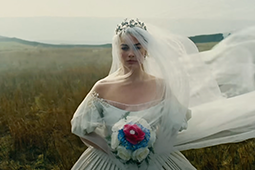
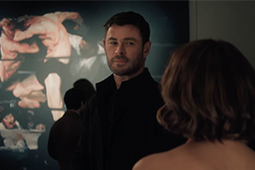
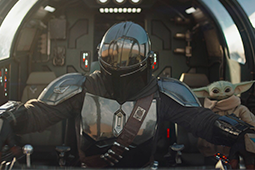

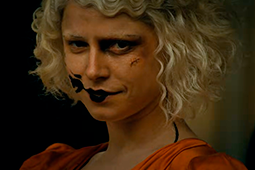


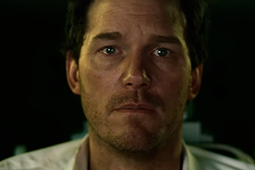
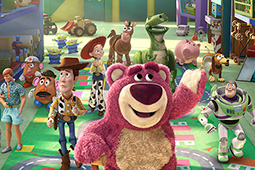


.jpg)
.png)



.jpg)


